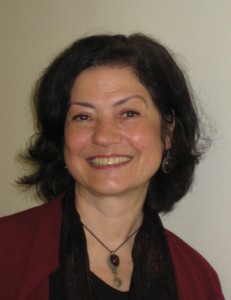Upper Left Leadership Inquiry
- As a leader and human being, who am I?
- What leadership qualities and values do I aspire to?
- How do I access and experience my wisdom, integrity, emotions and courage in the face of adversity?
- What is my vision and purpose for my life and my work?
- How deep is my commitment to leading from Being?
- How strong is my love for the world?
- What am I passionate about?
- How do I experience the dignity, freedom and joyful expression that I wish for others?
- Am I experiencing gratefulness, peace, compassion, justice and creative possibility?
- What daily practices do I commit to for developing my inner self and vision?
|
Upper Right Leadership Inquiry
- Am I walking my talk?
- Am I embodying my values?
- Am I taking care of my physical health?
- Is my leadership behavior aligned with my inner Being?
- How do I demonstrate ethics and integrity in my life and work?
- Do I have the expertise and skills to design, develop and implement my projects?
- Am I managing change in a responsible, relevant and creative manner?
- How do I measure the results of my plans and decisions?
- How does external feedback create more opportunities for learning?
- What practices do I commit to for achieving measureable results that are aligned with the needs of the world?
|
Lower Left Leadership Inquiry
- As a leader, how am I being with others?
- Do I communicate with wisdom, peace, compassion?
- Do I build trust?
- Am I enrolling partners to co-create new possibilities for the community?
- Do I appreciate the contribution of others?
- Do I speak up with integrity and sincerity in meetings?
- Do I listen to others?
- How do I respond to those who are different from me in race, religion, ethnicity, sexual orientation, politics and social status?
- How do I respond to disagreements?
- How do I receive and give feedback?
- Do I seek common ground and shared vision?
- Do I create a new level of discourse?
- Where do we share universal values?
- What practices do I commit to for developing cross-cultural awareness, multiple perspectives, diverse worldviews and trans-partisan solutions?
|
Lower Right Leadership Inquiry
- Do I understand the systems in which I live?
- Do I understand the systems in which I work?
- Do I understand the systems I wish to change?
- Am I aware of the underlying systemic causes and invisible patterns that create low morale, injustice, inefficiency, conflict and suffering in organizations and in the world?
- How am I shifting systems towards greater social responsibility and service in education, healthcare, law, politics, ecological conservation, corporate business?
- What practices do I commit to in order to foster and generate systemic change in service of person, planet and profit for all?
- What is the next step for generating evolutionary social change?
|
In the beginning of this exploration, we imagined the kind of leader who would create sustainable change in today’s society. Now imagine yourself as this leader and ask, as Hillel did, “If not I, who? If not now, when?” As we cultivate our access to Being, and manifest this Being-in-Action in service of the world, we “convince by our presence” as Whitman said, and we embody the change we wish to see in our lives, in our organizations and in the world. Here there is no separation. Here we are the world.
In summary, 21st century Leadership for Sustainable Change requires that leaders:
- Proactively explore and apply new methodologies for designing and leading change sourced from Being.
- Walk their talk and act from the wisdom of Being
- Serve from a deep connection with the Earth and all creation
- Commit to daily practices that cultivate the qualities, values and behaviors they wish to see in the world
- Are willing to face and feel personal and global suffering
- Are willing to commit to facing and transforming their shadow
- Embody their vision, are proactive and accountable for results
- Enroll others as co-creators of personal and planetary transformation
- Sustain momentum and emotional support in the midst of change
- Integrate inner and outer dimensions of personal growth and development
- Commit to the integration of inner values and outer worldly expression
References
Cashman, K. (2008). Leadership from the inside out. San Francisco: Berrett-Koehler.
Harvey, A. (2009). The hope: A guide to sacred activism. Carlsbad, CA: Hay House.
MacLaughlin, C. (2010). The practical visionary: A new world guide to spiritual growth and social change. Unity Village, MO: Unity House.
Scharmer, C. (2008). Theory u: Leading from the future as it emerges. San Francisco: Berrett-Koehler.
Senge, P. (1999). Dance of change: The challenge of sustaining momentum in learning organizations. New York: Crown Business.
Sharma, M. (2007, Fall/Winter). From personal to planetary transformation. Kosmos, 31-35.
Social Science Research Council. (2009). Measure of America: American human development report. Retrieved from http://www.measureofamerica.org/human-development/.
Wilber, K. (2001). A theory of everything. Berkeley: Shambhala.
About the Author
Vernice Solimar, PhD, is director of the Leadership for Sustainable Change certificate and chair of the Integral Psychology Department in the School of Graduate and Professional Studies at John F. Kennedy. She has also taught at the California Institute of Integral Studies and the Graduate Theological Union at Berkeley. Her main interests include the integration of psychology, philosophy, spirituality, transformative education and leadership in service of social and global change.



[…] VolckmannArticlesAn Integral Approach to Project Management—Brad McManus and Ron CacioppeLeadership for Sustainable Change—Vernice SolimarLeading in Uncertain Times: Leadership Characteristics of the Self-Transforming […]
[…] ArticlesMarch 2011 IssueAn Integral Approach to Project Management—Brad McManus and Ron CacioppeLeadership for Sustainable Change—Vernice SolimarLeading in Uncertain Times: Leadership Characteristics of the Self-Transforming […]